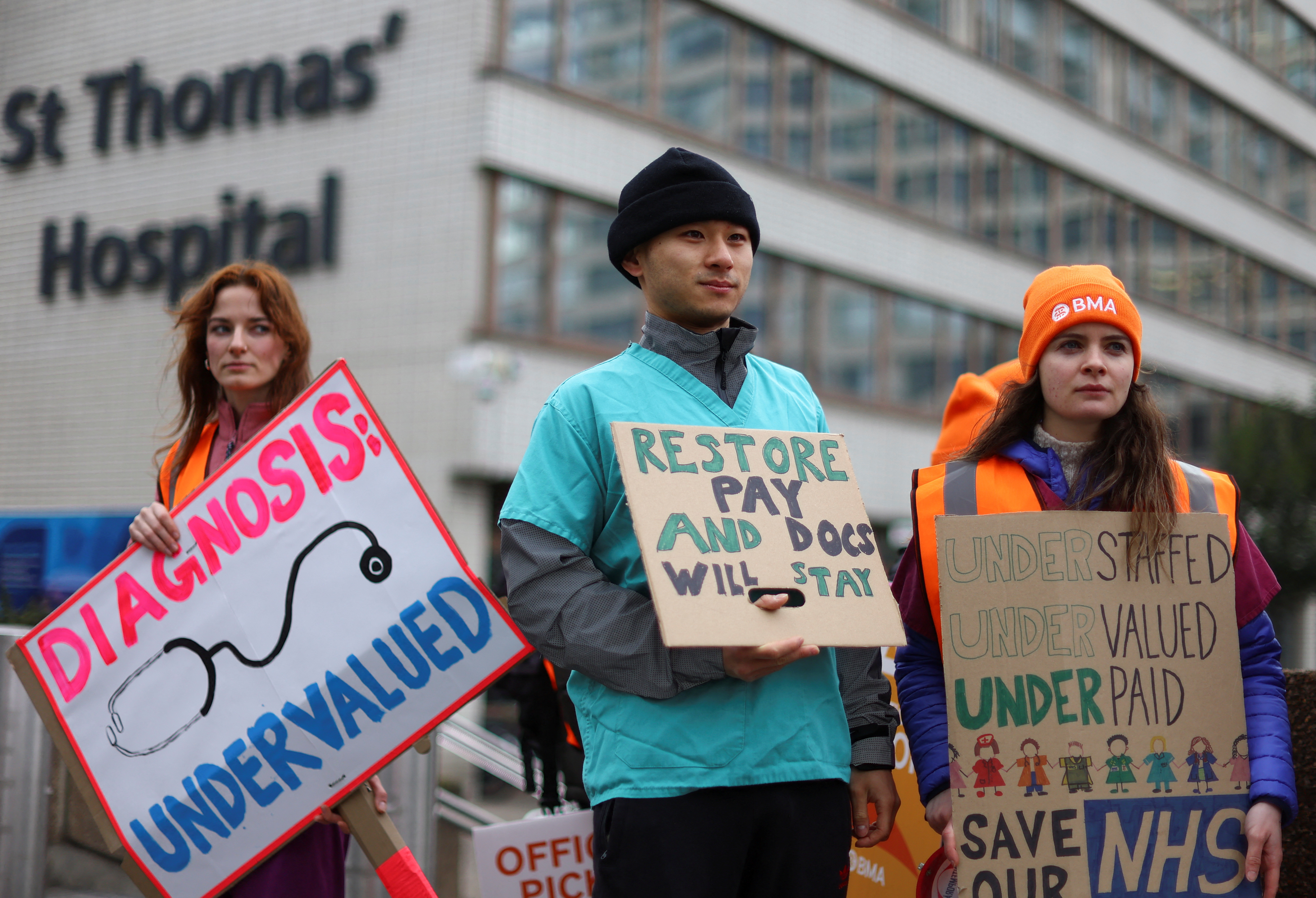Thousands of junior doctors in Britain walked out on Monday in a three-day strike that will disrupt patient care, as they protest over pay they say can work out at less per hour than a barista.
The strike is the latest involving staff at the state-funded National Health Service (NHS), following walkouts by nurses, paramedics and other workers demanding a pay rise that better reflects double-digit levels of inflation.
The NHS will prioritise emergency care during the strike, which could come at the cost of routine appointments, surgeries and even some urgent cancer treatments, NHS England National Medical Director Stephen Powis said.
“This is likely to be the most disruptive set of industrial action days that we’ve seen all winter,” Powis told Times Radio.
“We are working closely across the NHS to make sure that services are not affected in those emergency pathways,” he said. “But it is going to be a hard three days and it’s going to be quite challenging.”
Junior doctors in Britain are qualified physicians, often with several years of experience, who work under the guidance of senior doctors and represent almost half of the country’s medical workforce.
Their trade union – the British Medical Association (BMA) – says starting pay for junior doctors can be as low as 14.09 pounds ($17.04) per hour, one pence less than the top level of pay for a barista at British coffee chain Pret A Manger.
Prime Minister Rishi Sunak is under pressure to help end walkouts by health workers, which also hinder one his major priorities of cutting long waiting lists for treatment.
Health minister Steve Barclay on Friday invited the BMA for formal pay talks.
A broader wave of strikes in Britain, involving hundreds of thousands of public sector workers, comes at a time of pressured public finances and as Sunak’s government prepares to deliver a budget on Wednesday.







Click here to change your cookie preferences